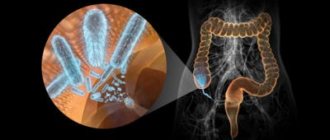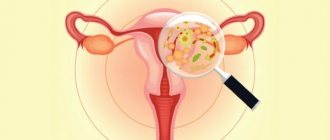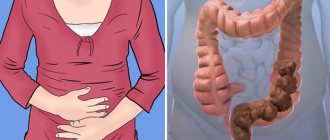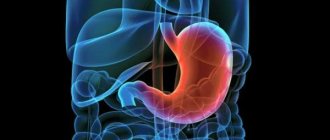One of the most common symptoms of a hangover is diarrhea. This condition occurs due to poisoning of the body with highly toxic breakdown products of alcohol and can persist for several days after drinking alcohol.
To avoid severe dehydration, the fight against diarrhea should begin immediately, using traditional methods and medications.
Causes of diarrhea after alcohol
In the process of drinking alcohol, toxic substances enter all systems and organs, disrupting their normal functioning. The liver and organs of the gastrointestinal tract are primarily affected. Diarrhea (as well as nausea) from a hangover is due to the fact that the body strives to get rid of toxins as quickly as possible.
Alcohol consumption
The main causes of diarrhea after alcohol include the following:
- Intoxication of the body. Due to the large number of substances that have antiseptic properties, alcohol destroys a significant part of not only harmful, but also beneficial microflora of the gastrointestinal tract. The digestion process slows down, and food in the intestines begins to ferment. This releases a large number of toxic compounds. As a result, diarrhea occurs, which helps to neutralize and remove harmful substances.
- Increased fluid content in stool. Part of the liquid entering the body is absorbed by the intestine itself. Ethanol negatively affects the condition of the walls of the stomach and intestines and inhibits the absorption process. The liquid remains in the stool and is excreted from the body along with it.
- Metabolic disease. With regular consumption of alcoholic beverages, ethanol is gradually included in metabolic processes. Alcoholics have toxins in their bodies almost constantly. The work of all organs is disrupted, in particular the digestive organs cease to function fully. Food is not digested properly, resulting in loose stools.
- Burns to the mucous membranes of the stomach and digestive tract provoke digestive disorders.
Exacerbation of existing diseases is the most dangerous cause of stomach upset after drinking alcohol. Among the pathologies that cause this condition:
- gastritis;
- peptic ulcer;
- enterocolitis;
- pancreatitis.
Black diarrhea is especially dangerous. It indicates the presence of internal bleeding, which requires immediate medical attention.
Abnormal bowel movements after certain types of alcoholic beverages
Digestive disorders after beer. According to statistics, 15% of citizens of our country consider barley drink harmless due to the ethyl alcohol content in it in the amount of 2-6%. And they don’t think that it could be the cause of ethanol poisoning or abnormal bowel movements. But this is a mistaken opinion. For example, 5 bottles of beer contain the same amount of alcohol as one bottle of vodka.
A number of factors cause gastrointestinal upset from beer:
- The presence of toxic additives (fragrances, food additives) that irritate the mucous membranes.
- Formation of gases (bloating).
- Amount drunk. It is difficult for a person to cope with three or four liters of liquid immediately entering the body.
All this together undermines the functioning of the digestive organs and after a beer party an unpleasant phenomenon occurs - diarrhea.
Intestinal upset (diarrhea) from champagne
Sparkling wine also belongs to low-alcohol drinks. But sometimes after drinking two or four glasses, loose stool appears. The reason is carbon dioxide, under the influence of which there is an immediate effect of toxic substances on the body, damage to the mucous membranes occurs, the level of hydrochloric acid in the stomach increases and the contraction of the walls of the digestive tract intensifies and this causes diarrhea.
Wine disorders
Red and white wines provoke an increase in the level of hydrochloric acid in the stomach, just like champagne. In addition, grapes act as a laxative on the digestive organs. Loose stools occur in 40% of cases after consuming unnatural wine drinks, the manufacturer of which adds toxic dyes.
Diarrhea from vodka
Alcohol products: vodka, cognac contain 40% ethanol. Entering the human body with food, ethanol blocks pepsin produced by stomach cells and the food is not digested, but ferments and rots. The result is diarrhea.
Methods for treating diarrhea from wine, beer, cognac or vodka are similar and are described above. Following a diet and appropriate actions aimed at removing toxins from the body that entered the body with alcohol will help eliminate the unpleasant consequences after two to three days.
How do different types of alcohol affect the stomach and gastrointestinal tract?
Any alcoholic drinks have a negative effect on the gastrointestinal tract. Once in the stomach, alcohol provokes excessive acid secretion, which in turn causes irritation, damaging the walls of the stomach and then the intestines. As a result, the organs gradually atrophy, the process of digestion, as well as the absorption of liquids and nutrients, is disrupted. In addition, ethanol has a detrimental effect on the intestinal microflora.
Intestinal microflora
The effect of the drink depends on its strength, degree of carbonation, and concentration of chemical additives.
Low alcohol drinks
It is wrong to believe that drinks with low alcohol content are harmless to the body. They cause no less harm to the body than strong alcohol; in particular, they can cause diarrhea.
Malaise (including diarrhea) in the case of drinking weak alcohol may be associated with:
- with a high concentration of preservatives, fragrances, flavor enhancers, dyes that irritate the mucous membranes of the stomach and intestines;
- with a large amount of carbon dioxide in the drink (in the case of drinking champagne, beer, sparkling wines), which accelerates the absorption of alcohol, provokes gas formation, heartburn, and indigestion;
- with the laxative properties of the drink (for example, in the case of wine).
Another reason why low-alcohol drinks pose a threat is that they are most often drunk in large volumes, which means the negative impact on the body increases.
Strong alcohol
Alcoholic drinks with a high alcohol content (vodka, cognac, tequila, whiskey), when entering the body, block the synthesis of pepsin, a digestive enzyme produced by the stomach. As a result, the breakdown of proteins is disrupted, food is not processed, and begins to ferment and rot. This leads to the appearance of loose stools.
In addition, diarrhea can be from low-quality vodka or cognac, with a large amount of fusel oils or harmful chemical additives.
Why does a hangover cause diarrhea?
Why do I have diarrhea after drinking alcohol? You had a lot of fun in the evening, largely thanks to the relaxing and liberating effects of alcoholic drinks. And the next morning, as soon as you opened your eyes, you ran to the toilet and spent most of the day there. The reasons may lie in:
- Poisoning. Having been attacked by diarrhea after a feast, most people complain about the poor quality and staleness of the snack (the well-known “salad poisoning”). But more often the cause of poisoning of the body is alcohol. The main mechanism of protection against incoming poisons is to “turn off” the absorption function of all tissues capable of this, and cleanse the stomach and intestines of contents - a possible source of poisons. Hence the appearance of vomiting and diarrhea after drinking.
- Dysbacteriosis developing due to the disinfecting properties of alcohol. Once in the body, ethyl inhibits all flora in its path. It doesn’t matter whether it is beneficial for the body or pathogenic. An imbalance of microflora is a significant reason that can cause diarrhea with a hangover.
- Violation of the integrity of the mucous membrane and its full functionality due to ethanol burns. The ability of the intestinal walls to absorb moisture and nutrients decreases. As a result, without having time to be absorbed, excess fluid accumulates in the intestinal lumen. An overcrowded intestine naturally gets rid of excess. Diarrhea after alcohol is a mechanism for cleansing excess.
- Strong choleretic effect from fatty snacks. After alcohol-containing drinks, acidity in the gastrointestinal tract increases, and fat plus acid is a strong choleretic agent. The intestines work more intensely and remove contents faster, without retaining fluid in the rectum for absorption.
- Exacerbation of chronic diseases due to alcohol consumption: Gastritis and ulcers
- Pancreatitis
- Inflammatory processes in the liver (hepatitis and cirrhosis)
- Alcohol disrupts the production of peptin, a substance necessary for the breakdown of protein. It can also lead to intestinal disorders.
Features of diarrhea after drinking alcohol
With diarrhea after alcohol, stool may differ in the following ways:
- quantity;
- smell;
- color;
- frequency of bowel movements;
- duration of diarrhea;
- presence of impurities;
- associated sensations (heartburn, nausea and vomiting, stomach discomfort, abdominal pain, fever).
Much can be said by the color of stool and the presence of inclusions:
- diarrhea with blood indicates the presence of a fissure or fistula in the anus, and may also be a symptom of developing hemorrhoids or vascular pathology in the intestines;
- green diarrhea indicates severe poisoning and the possible development of a viral infection;
- bile impurities are the first sign of liver or pancreas disease; such diarrhea often occurs after heavy drinking;
- Black stool indicates internal bleeding, which can also be caused by the onset of liver destruction.
Abnormal stool
Typically, alcoholic diarrhea, not complicated by internal pathologies, lasts from 12 hours to 2 days and occurs only occasionally. If diarrhea appears every time after drinking alcohol and is protracted, this is a good reason to be more attentive to your health.
What are the types of diarrhea after drinking?
You need to monitor the condition of your stool regardless of whether you feel sick or completely healthy. Color, consistency and possible inclusions in stool can become information that can identify diseases, the course of which may not be obvious. It is especially important to pay attention to the type of bowel movements if you suffer from diarrhea due to a hangover. You should be wary if:
- Black diarrhea after alcohol. In this case, immediately strain your memory and remember if you drank activated charcoal, trying to protect yourself in advance from such consequences of binge drinking. If you don’t remember, call your more sober drinking buddies, they could also have contributed to the entry of black adsorbent into your body, in an impulse to help an injured friend. Iron supplements (for anemia) also produce black stool. If this did not happen, you better go to the hospital immediately, since the black color of stool from a hangover may be due to the presence of coagulated blood in it. This signals open internal bleeding in the upper intestines, which can pose a great danger to human life.
- Feces are yellow or greenish in color. If accompanied by acute pain in the right side under the ribs, then this is the result of the release of bile from the gallbladder, inflamed from the effects of alcohol. The green color often occurs after drinking beer with a large amount of carbohydrates (sweets) or legumes, cabbage, or black bread. Intensive fermentation in the gastrointestinal tract produces greens.
- Diarrhea with blood after alcohol. If you can see splashes of blood, then most likely the bleeding areas are located close to the “exit”, namely in the rectum. This may be a sign of hemorrhoids. In this case, it is also necessary to seek help from specialists. Hemorrhoids, which are ignored, subsequently lead to more serious diseases, including cancer.
- White feces - alcoholic dysbiosis (during heavy drinking), obstructed outflow of bile, stones, tumor.
- A light grayish tint and a sharp unpleasant odor during bowel movements indicate possible hepatitis or pancreatitis. Or simply about a very fatty snack after alcohol, which the pancreas cannot cope with digesting.
All these variants of diarrhea after alcohol cannot be ignored; they may be indicators of developing pathologies. If your body is giving you signals, turn it to your advantage by seeking professional help.
Is it possible to drink alcohol if you have diarrhea?
Since an upset stomach that appears after drinking alcohol directly indicates that there are disturbances in the functioning of the digestive system, further consumption of alcohol will only worsen the situation.
All recipes for diarrhea that include alcoholic beverages will not have a positive effect. Irritation of the mucous membrane, death of beneficial bacteria in the intestines, accumulation of toxins - all these consequences of alcohol entering the body will cause longer-lasting diarrhea, and possibly provoke the appearance of other unpleasant symptoms. Therefore, drinking alcohol during diarrhea is strictly not recommended.
Homemade herbal infusions and drinks
In addition to medication, diarrhea can be treated with various herbal remedies. Many people doubt such methods, but in fact they are no less effective than medical drugs created in pharmaceutical factories.
Before consulting a doctor, you can temporarily use safe traditional medicine recipes that have a gentle effect on the human body, restoring the water-salt balance. For this purpose, medicinal herbs and natural remedies that have an astringent effect are used.
Diarrhea causes dehydration and therefore it is necessary to drink as much fluid as possible. However, you don’t just need to quench your thirst with plain water; you need to drink various infusions, teas, decoctions and solutions.
Tincture of oak bark and calamus
Oak bark must be combined with calamus in one to one proportions. From the resulting dry mixture you need to take one tablespoon and brew it like a simple tea. Leave for at least 40 minutes and strain. Drink one quarter of a glass before each meal.
Geranium leaves and flowers
Another good way to combat diarrhea. One teaspoon should be filled with cold boiled water. To get the maximum effect, you need to infuse the drink for 8-9 hours and then strain. You need to drink it in small sips throughout the day.
Pear drink
To prepare the drink you will need dried pears. The fruits will need to be chopped. Place one tablespoon of pears in a glass or ceramic container and pour boiling water over it (a full faceted glass, that is, 250 ml). Infuse the drink for at least 4 hours, filter and take 1 quarter glass 3 or 4 times a day.
Pear tincture is considered a wonderful remedy and allows you to stop diarrhea in the shortest possible time and resume all functions of the water-salt balance.
Dried wormwood, leaves and stems
Wormwood is distinguished by its distinct smell and bitter taste, which is why many people do not like it. However, it is excellent in treating diarrhea. To prepare the tincture, you need to brew one teaspoon of dried wormwood with boiling water and leave for half an hour. Then you must strain it and you can take one tablespoon three times a day. It is worth paying attention that such a course should not last more than one day.
Alder cones and serpentine roots
These ingredients can be purchased at any pharmacy. Making a tincture is not at all difficult: you need to take the components in proportions of two to one, that is, two parts of cones and one part of coil roots. Brew like regular tea. You can drink it at any time during the day.
Pomegranate peels
Also a wonderful remedy for quickly restoring water-salt balance. You need to take one tablespoon of dried pomegranate peels and pour one glass of boiling water. Be sure to insist that the drink acquires a dark color.
Pomegranate tincture has a pleasant taste, and it also needs to be strained and drunk at once before use. A new fresh portion is prepared for the next meal.
What are the dangers of diarrhea?
After drinking alcohol, diarrhea can begin almost immediately or appear in the morning, aggravating an already severe hangover.
The main danger of this condition is gradual and steady dehydration of the body. Not only liquid comes out with stool, but also various nutrients, beneficial compounds, and vitamins. Thus, dehydration is accompanied by exhaustion.
If diarrhea lasts for several days, then the lack of fluid and nutrients becomes more and more noticeable, more and more global disruptions in the functioning of internal organs begin, which means the performance of the body as a whole is disrupted.
Intestinal upset after alcohol: how to avoid?
In order not to think about the question of how to restore the intestines after alcohol, it is better to take the necessary measures in advance. To eliminate unpleasant symptoms, it makes sense to give up fatty foods both on the day of drinking alcohol and the day before. The same applies to:
- Spicy foods,
- Heavy foods rich in proteins - meat, sausage, legumes,
- Gribov.
Even if you drink alcohol, the intestinal microflora will suffer the least in this case, and you will not suffer from a hangover in the morning. You can also take an intestinal cleanser or a mild laxative, or do an enema half a day before you drink alcohol - this will help even if you were eating heavy food before.
Treatment of stool disorders
Treatment of diarrhea after alcohol includes measures to cleanse the body, restore water-salt balance, as well as a special diet.
Smecta
If diarrhea is caused by drinking alcohol, the action plan is as follows:
- Stop drinking alcohol immediately.
- Empty the stomach by inducing vomiting.
- Take a sorbent (activated carbon, Polysorb, Enterosgel, Smecta).
- Maintain the balance of water and salts, for example, with Regidron.
- To restore microflora, you can take prebiotics and probiotics (Linex, Hilak Forte).
- Imodium or Lomeramide can help reduce the number of bowel movements.
If you have diarrhea, you need to drink plenty of fluids (clean water, herbal infusions, green tea). You can also use folk recipes. So, rice water will help restore intestinal motility. An infusion of oak bark has an astringent effect.
In the first 12-14 hours, it is recommended to refuse food, and then adhere to a certain diet for 2-3 days. Fatty, spicy, fried, salted, pickled foods, caffeinated drinks, processed foods, fresh bread, pastries, and carbonated drinks are prohibited. It is best to boil or steam foods.
It is very useful to include rice or oatmeal with water in your menu. You need to eat a little every 2-3 hours. Food should not be cold or very hot.
How to get rid of diarrhea caused by drinking alcohol
You can get rid of diarrhea after binge drinking with the help of medications, traditional medicine, as well as adjusting your diet and drinking regime.
How to quickly cope with diarrhea?
To cope with a hangover when drinking alcohol, it is necessary, first of all, to cleanse the gastrointestinal tract of toxins. Artificially induced vomiting will help with this. You should also increase the amount of fluid consumed by frequently drinking clean water, tea, compotes, fruit drinks or rehydration solutions, which you can buy at a pharmacy (Regidron) or prepare yourself (dissolve 1 tsp of salt and sugar in 1 tbsp of warm water).
Taking sorbents will also help get rid of toxins after drinking alcohol:
- Activated carbon 1 tablet for every 10 kg of body weight 3-4 times/day;
- Smecta – 6 sachets throughout the day at regular intervals;
- Enterosgel – 2 tsp 3 times/day;
- Polysorb – 200 mg of the drug during the day.
To normalize the functioning of the gastrointestinal tract and restore intestinal microflora after drinking alcohol, you should take probiotics and prebiotics for 3-5 days:
- Linex – 2 capsules 3 times/day;
- Hilak Forte – 50 drops three times a day;
- Bifidumbacterin – 5 doses 3 times a day.
When should you see a doctor?
Sometimes diarrhea is just a symptom of a much more serious illness. It is necessary to urgently seek medical help in cases where, in addition to loose stools after alcohol, one or more of the following signs are present:
- heat;
- severe nausea, vomiting;
- there is blood, bile or black inclusions in the vomit and/or feces;
- clouding of consciousness, hallucinations;
- the skin acquired a yellowish tint.
Diarrhea lasting more than 3 days may also indicate the presence of internal pathology. It must be remembered that in these cases, delay or self-administration of medications can lead to a deterioration in the general condition.
Consequences of a hangover
All types of alcohol have a diuretic effect. With frequent urination, the body loses water, and most importantly, electrolytes and glucose. A deficiency of magnesium, potassium, and calcium immediately affects the functioning of the heart and muscles. Tachycardia appears and muscle cramps occur. Possible consequences from internal organs:
- regular consumption of alcohol leads to the development of alcoholic gastritis;
- Drinkers have a high risk of developing peptic ulcers. A perforation of the stomach wall may occur, which is indicated by vomiting blood. An alarming sign is black diarrhea after drinking alcohol. It indicates hidden gastric bleeding;
- With a hangover, liver and gallbladder diseases worsen. Nausea, vomiting bile, and green stools appear.
If dangerous symptoms appear, you should contact a gastroenterologist.
Associated symptoms
When abusing alcohol, people usually experience such undesirable effects as:
- nausea;
- vomit;
- belching with a specific odor;
- reflux of acidic contents into the oral cavity.
If there are signs of gastritis, then you need to see a specialist.
An alarming signal is diarrhea with bile, blood, or black or white feces. Often, alcohol lovers experience yellow diarrhea, which indicates an exacerbation of pancreatitis - inflammation of the pancreas. Regular loose stools after drinking may indicate the development of gastritis. In this case, you should immediately consult a doctor who will conduct a diagnostic examination and prescribe treatment measures.
It is extremely important not to delay treatment in order to prevent serious complications of gastritis, one of which is an ulcer. Therefore, observing fluctuations in body temperature, weight loss, diarrhea followed by constipation, you need to urgently go to a medical facility. Alcohol abuse can cause inflammation in the liver and, as a result, the development of hepatitis. Then the patient will experience not only diarrhea, but also vomiting, an increase in body temperature to 38 degrees Celsius, as well as pain in the liver area.
About treatment
What to do if you have diarrhea before seeking medical help? You can take rehydron, orasan, or ringer solution. This way you can restore the balance of salts in the body. The use of bird cherry and chamomile decoction is indicated; decoctions of oak bark and alder cones are also used. They have an astringent effect. If diarrhea is one-time, then rice water will help. It is cooked so that its thickness is similar to thick jelly, which should be eaten with rice.
If pain in the abdominal area and severe diarrhea are caused by inflammation of the pancreas, then the patient should fast and be on bed rest for 3 days. During this period, you can drink only 3-4 glasses of water. Dietary table No. 5 is shown, in which fatty substances are limited and coffee, tea, chocolate, and alcoholic beverages are excluded.
If diarrhea continues for a long time, then hospital treatment combined with nutritional correction is required.
If diarrhea is caused by drinking too much alcohol, then:
- The stomach is washed.
- Drink more water.
- A person adheres to a diet for 2–3 days.
- Foods that irritate the stomach and intestines are excluded.
- They take medications that restore intestinal microflora (Linex, Bifikol, Bifiform).
It is worth remembering that if the disorder continues for a long period, then the patient requires medical assistance; self-medication is fraught with serious complications. To prevent diarrhea, you must completely abstain from alcohol. This is the only way to preserve the most precious thing we have - health.
Root causes of manifestation
Many people are well aware of the negative effects of alcoholic beverages on the body.
The main component of all strong drinks is ethanol. Its absorption is a difficult test for the body. When a person tries alcohol in large quantities for the first time, a number of negative symptoms often await him. They are caused by the body’s desire to cleanse itself and remove ethanol. As a result, a person experiences nausea, diarrhea, and vomiting. Over time, the body begins to adapt to drinking alcohol. However, this is a complex process that involves processing and disposal. It requires colossal expenditures of reserve forces. The body cannot systematically protect itself from the effects of alcohol intoxication. The digestive organs are primarily affected.
Alcohol is a slow poison, which is always reflected by such consequences as changes in metabolism, the condition and quality of work of internal systems and organs. The greater the dose of alcohol, the more significant the poisoning.
Ethyl alcohol burns the oral cavity and esophagus, and has a detrimental effect on the mucous membrane of the stomach and intestines. It is absorbed into the blood and disrupts neurohumoral regulation. As a result, a number of disorders occur, including nausea, headache and diarrhea.
With systematic alcohol consumption, blood capillaries are destroyed and the integrity of the mucous membrane deteriorates. When the analgesic effect of alcohol ends, a person experiences pain. In chronic alcoholics, pain in the digestive organs after heavy drinking is a completely natural phenomenon. Nausea and heartburn, belching with fumes are typical phenomena for those who drink regularly.
The most alarming symptom will be diarrhea mixed with blood. In this case, you should immediately consult a doctor. A medical professional will determine how to stop the bleeding.
The cause of regular stool upset after drinking alcohol may be the presence of the following ailments:
With peptic ulcers, blood clots are observed in diarrhea. However, it is most dangerous when the color of the stool is black. This indicates heavy internal bleeding.
Of course, if you suspect chronic gastritis, you should completely stop drinking alcohol and check your stomach function by visiting a medical facility. If the diagnosis is confirmed, it is necessary to undergo a treatment course. You will also need a strict diet that excludes the consumption of strong drinks.
With advanced gastritis, an ulcer often occurs. In this case, diarrhea appears, which systematically alternates with constipation. In addition, a person’s weight decreases, periodically decreases, and then increases body temperature.
Loose stools can be a signal of problems with the pancreas. Diarrhea after drinking alcohol often indirectly indicates the presence of pathologies in this organ. Ethanol is a direct provocateur of acute gastritis. Therefore, even moderate amounts of alcohol will have a negative impact on your health.
Hepatitis can also cause diarrhea. In addition, the person’s temperature rises and pain occurs in the liver area. Such symptoms signal the need to begin a course of treatment. Otherwise, the disease will become severe, transforming into cirrhosis. As a rule, this disease is incurable.
How does alcohol affect the intestines?
The main component of alcoholic beverages is ethanol. It is synthesized in the lumen of the gastrointestinal tract as a result of the fermentation of carbohydrate foods by beneficial bacteria. This amount is quite enough for the body for the correct course of all biochemical reactions. But when ethanol comes in from outside with alcoholic beverages, the situation changes dramatically. Now ethyl alcohol and its main metabolite acetaldehyde have a toxic effect on the intestines:
- , the main component of the mucus that covers the inner wall of the small and large intestines, protecting them from damage, decreases
- the permeability of biological membranes is impaired . Undigested food remains, pathogenic microorganisms and toxic products of their vital activity easily pass through them;
- against the background of worsening salivation, appetite increases . But it is in the oral cavity that the breakdown of some food products begins. Without treatment with saliva, they enter the digestive tract unprocessed, provoking the development of putrefactive and fermentation processes;
- the intestinal mucous membranes become inflamed . Swelling forms, moisture absorption, absorption of vitamins, micro- and macroelements are disrupted. Clinically, inflammation is manifested by pain in the lower abdomen, burning, and sometimes intestinal colic.
The effect of alcohol on the human intestine is extremely negative. It is not without reason that ethyl alcohol is in demand in industry as a universal solvent for both inorganic and organic compounds. Upon contact with the mucous membranes of the gastrointestinal tract, ethanol dries them out, thins them, and impairs blood circulation. In such conditions, restoration of damaged cells is impossible - irreversible scar changes occur.
Diseases and symptoms
- Gastritis, acute and chronic. With this disease, loose stools are common. Chronic gastritis is, so to speak, an “occupational” disease of people who abuse strong drinks. The next intake of the “potion” becomes a kind of impetus for the exacerbation of the disease, and the periods of remission become shorter and shorter. As a result, gastritis develops into a stomach ulcer.
- Stomach ulcer. Long-term use of alcohol-containing drinks provokes the development of the disease, and ulcerative lesions become more and more numerous. The same can be said about duodenal ulcer. With a peptic ulcer, loose stools after alcohol will be black in color, with an extremely unpleasant odor and remnants of undigested food.
- Hepatitis. This is a disease that affects the liver. This organ plays a vital role in the body, because it retains all harmful substances and toxins. Ethyl alcohol destroys liver cells more than all other internal organs. With hepatitis, after drinking alcohol, diarrhea mixed with bile is observed. If the disease develops and there is no treatment, hepatitis develops into cirrhosis of the liver.
- Cirrhosis of the liver. An extremely dangerous disease in which, after drinking alcohol, black diarrhea mixed with venous blood begins. The stool has a terrible smell. Such symptoms are a direct reason for urgent consultation with a specialist. Cirrhosis of the liver is often the result of many years of abuse of strong alcohol, and especially vodka.











